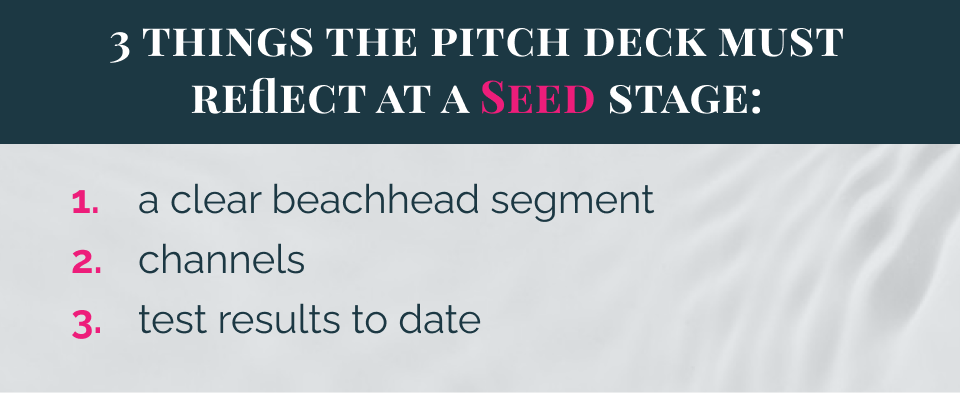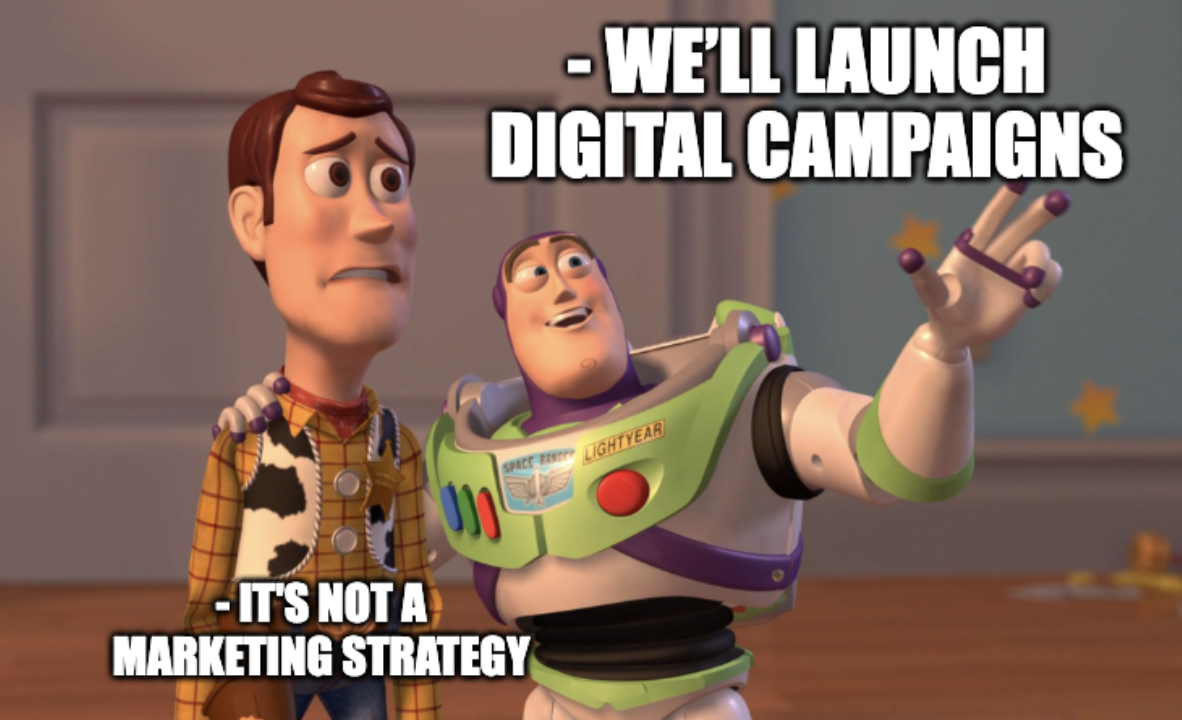Series A is often the time when marketing budgets start bloating.
All of a sudden, organic product-led growth is showing the first signs of exhaustion. It is time to come up with a real gig.

Maria Tsarkova, CMO and co-founder at Solid Water:
"Seven or eight years ago there was a real boom in PE and VC funding for startups when founders could successfully pitch at Series A level while still having a very vague understanding of their audience profiles and mechanisms to reach them.
However, post-pandemic, the financial climate made investors more prudent, especially in the B2C space.
Investors now look for PMF (product-market fit) and critical evidence for scalability one stage earlier.
What was expected from a Series A start-up is now expected at a Seed stage. When asking for a sizable marketing budget, the pitch deck needs to reflect a clear beachhead segment, channels & test results to date."

When startups, particularly those in the B2C sector, start raising their Series A funding, it's common for the marketing budget to account for 50% or more of the total funds raised.
So as an investor it is your job to ensure that the founders and their marketing person have a solid idea of how exactly their marketing strategy (for which they are raising funds), will help them achieve their targets.
You’d expect some clarity around:
🔍 current & target CPA (cost per acquisition)
🔍 timeline to achieve it
🔍 and, most importantly, cost per ACTIVE user (whatever the definition for a particular product may be).

Daria Partas, co-founder of Solid Water marketing agency:
"Recently, a friend of mine attended a pitch night. He left the event in elevated spirits.
“I really enjoyed the pitch by the startup X”, he told me. “The founder seems very credible, with a background in management consulting and strong tech creds. I am going to invest but can you please have a chat with them about the marketing strategy?”
He shared the pitch deck with me.
The startup was raising several hundred thousand pounds, with exactly 50% of the funds to be allocated towards marketing. However, the declared marketing strategy seemed completely off. I told him to hold his horses before I spoke with the founder to probe them on the strategy.

During our chat, it became clear - both to the founder and to me - that the marketing approach they had in mind (and for which they were asking a few hundred thousand quid) was not going to work. I recommended my friend against investing in this startup."
At Solid Water, we work with investors to help make informed decisions about the viability of the startups marketing strategies. Equally, we work with founders to help them make a marketing case for investors when raising Seed or Series A round.
Get in touch: marketing@solidwateragency.com

Anastasia Dobronravova, Head of Strategic Marketing at Solid Water:
“Having clarity around your customer profiles and their user journeys is a must before investing money in launching and scaling marketing outreach campaigns.
Lack of fluency with data, absence of basic (or better yet, not-so basic) analytics tools (see our newsletter edition on MarTech) and limited understanding of a customer journey to a purchase is a red flag 🚩
The choice of marketing channels must always be underpinned by data and evidence, whether collected through martech tools or available desk research or in-depth customer interviews.”
Founders have to be able to present the full marketing funnel and some understanding of how customers behave at every stage of their journey. We say ‘some’ because likely the samples at this stage are small and free analytics tools at their disposal are still limited in functionality. However, founders should have a clear answer to the following question: Are there any roadblocks to converting leads into paying customers?
Very likely there will be, so they need to have a plan to tackle them.

Before asking for money, founders have to be crystal clear
💎 who they are selling to,
💎 whether there is a market for their product or service,
💎 where the target audience is,
💎 what drives it to purchase.
If you are not getting answers to these questions, do not invest in this company.

Maria Tsarkova, CMO and co-founder at Solid Water:
"I get really nervous when I see Seed or Series A stage pitch decks with very limited information about their marketing plans.
One slide with a cliche strategy akin to "We will add more channels to our digital marketing campaigns" or “We need £500k for the roll out of an ATL campaign” definitely warrants further probing.

Everything that’s very generic such as “we’ll launch digital campaigns” is a 🚩MASSIVE RED FLAG🚩. Super high level budget presentations make me equally uncomfortable. Budgets have to be grounded and thoroughly calculated. At this level I expect the company to have at least run some pre-launch campaigns, tested dozens of hypotheses to do with channels, user journey and messages, and therefore can speak quite accurately how expensive it is to acquire a user and then engage them further. I should also hope that they would have a backlog of hypotheses that would help cut these numbers down by at least a half."
Series A is the time to laser focus on the beach head customer segment, not to try and broaden the appeal to 3 or more audience segments. A founder and their marketing lead must be in the position to defend their marketing strategy and budget at a granular level when they are asking the investors to trust them with their money.
{$te}
Here are the top five marketing red flags 🚩 to look out for in a pitch deck:
1️⃣ A surface level understanding of their beachhead customer segment or an absence of one
2️⃣ No evidence of marketing tests they have carried out
3️⃣ Lack of engagement with consumers - no interviews, polls, reviews. Absence of qualitative & quantitative data.
4️⃣ Vague channel strategy with limited calculations on costs & ROI
